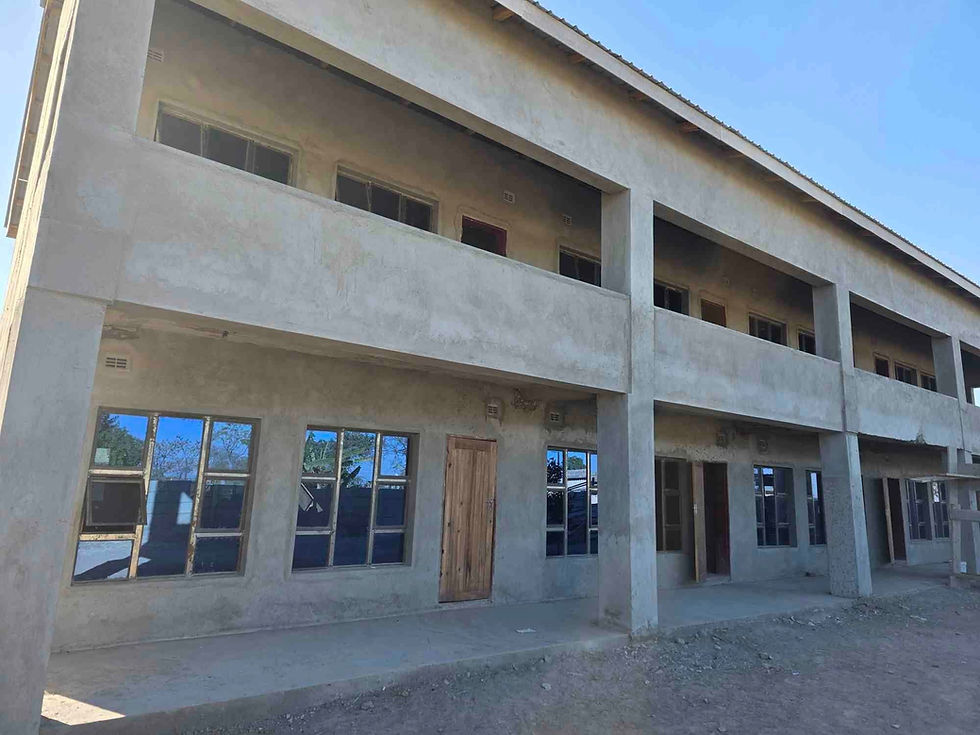Water Insecurity in Rural Zimbabwe: A Persistent Challenge
- Chipochashe
- Jul 6, 2024
- 3 min read

Access to clean and safe water remains a pressing concern for millions living in rural Zimbabwe. While efforts have been made to improve infrastructure, persistent challenges continue to hinder progress, impacting health, livelihoods, and development.
Key Challenges and Facts:
Limited Access: According to UNICEF, only 67.9% of the rural household population in Zimbabwe has access to improved water sources. This compares starkly with 97.3% access in urban areas, highlighting a significant disparity.
Contamination Risk: A report by the World Health Organization estimates that around 25% of rural water points in Zimbabwe are contaminated with fecal matter, posing a severe risk for waterborne diseases.
Economic Impact: The lack of water access has a direct impact on rural livelihoods. A study published in the Journal of Sustainable Development in Africa found that women in rural Zimbabwe spend an average of 4 hours a day collecting water, reducing their time for economic activities.
Climate Vulnerability: Zimbabwe is already experiencing the effects of climate change, with more frequent and severe droughts. This further exacerbates water scarcity in rural areas, as highlighted by the UN's Sustainable Development Goals report on Zimbabwe.
Gender Disparities: The burden of water collection often falls on women and girls, impacting their time for education, economic activities, and overall well-being. Long distances to water sources also increase vulnerability to gender-based violence.
Economic Factors: The cost of water infrastructure development and maintenance is high. For many rural communities, financial constraints limit their ability to invest in or maintain water systems. The lack of adequate water infrastructure, coupled with poor sanitation and hygiene practices, has led to a surge in waterborne diseases, including cholera, typhoid, and dysentery.
Waterborne Disease Burden:
Cholera Outbreaks: Zimbabwe has experienced several devastating cholera outbreaks in recent years, with the most severe occurring in 2008-2009, claiming over 4,000 lives. In 2023, another cholera outbreak swept through the country, affecting over 30,000 people and resulting in 683 deaths as of April 11, 2024, according to UNICEF.
Typhoid Fever: Typhoid fever remains endemic in Zimbabwe, with outbreaks frequently reported in both rural and urban areas. The World Health Organization estimates that Zimbabwe has one of the highest incidences of typhoid fever in the world.
Other Waterborne Diseases: Diarrhea, dysentery, and other waterborne illnesses are widespread in rural communities, particularly among children under five. These diseases often result in malnutrition, stunted growth, and long-term health complications.
How we improving access to clean water in Zhanje and Ditima Villages
Clean Water Access: Previously, residents of Zhanje and Ditima had to rely on contaminated water sources such as shallow wells. Chipochashe's boreholes now provide 220 households, approximately 1,000 people, with a consistent and reliable source of clean drinking water. The water from our boreholes undergoes regular testing to ensure water quality.

Improved Health and Well-being: Access to clean water has had a ripple effect on overall health and well-being. Children, who were previously most susceptible to waterborne diseases, are now healthier and better able to attend school. Women and girls, who often bear the burden of water collection, have more time for education, economic activities, and personal pursuits.
Reduced Economic Burden: Water collection is a time-consuming and physically demanding task, often requiring long walks to distant water sources. The boreholes within the villages give residents more time and energy to focus on income-generating activities, improving their livelihoods and contributing to the local economy.
Community Empowerment: Chipochashe's approach emphasizes community involvement and ownership. The community is proactively involved in the maintenance and management of the community water points, ensuring the project's long-term sustainability. This fosters a sense of empowerment and self-reliance within the community.


Chipochashe's intervention in Zhanje and Ditima demonstrates the power of targeted, community-driven solutions in addressing the water crisis in rural Zimbabwe. By providing a reliable source of clean water, we have not only improved the health of the community but has also empowered residents and enhanced their overall quality of life.


Comments